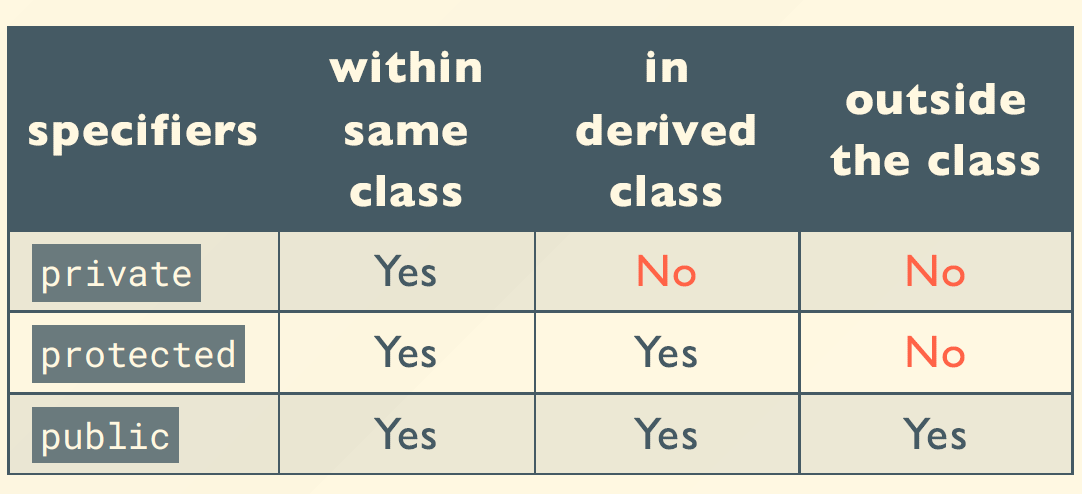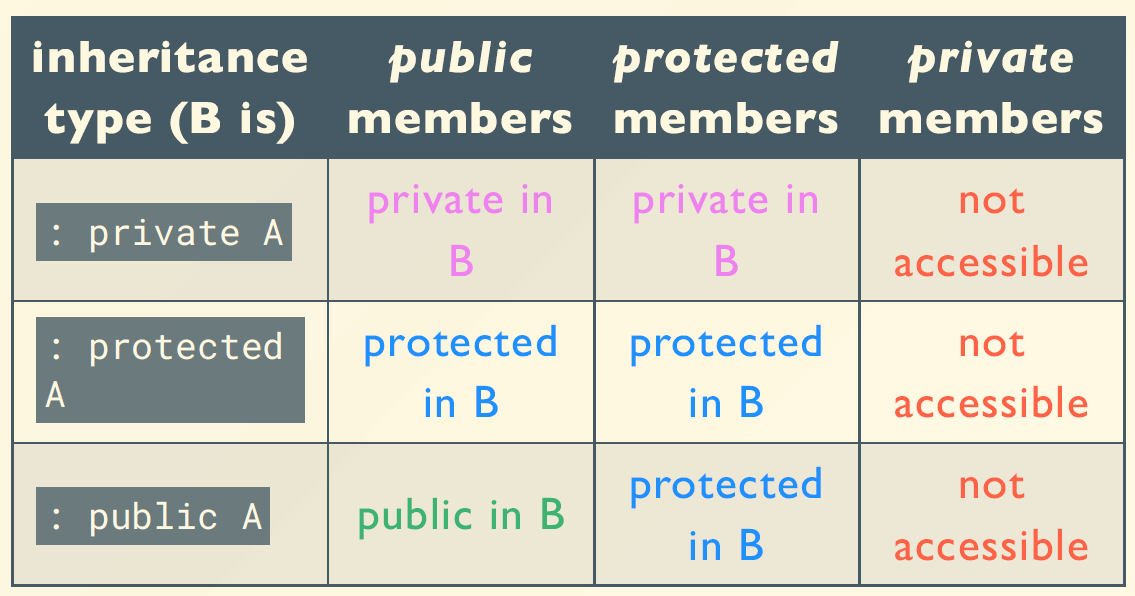Composition and Inheritance¶
约 121 个字 92 行代码 预计阅读时间 2 分钟
Composition¶
-
\(A\) has \(B,C\).
\(A\) is composed of \(B\) and \(C\)
\(B,C\) is the embedded object of \(A\), usually made private.
-
Ctors
class A{ B b; C c; public: A(args...) : b(...), c(...) {} };If sub-constructors not exist in init-list, default ctor will be called.
Inheritance¶
-
Ctors
class B : public A{ public: B(...) : A(...) {} };Base class always constructed first.
Order:
Base class ctors -> members (w.r.t. members' definition order, not order in init-list) -> My ctor body.
-
Call base class functions
Only public and protected base class functions can be called.
A::func();// Compile error class A{ public: A(){cout << "A::A()" << endl;} int f1(){} private: int f2(){} }; class B : public A{ public: int f1() {A::f2();} };If you redefine a member function in the derived class, all the other overloaded functions in the base class are inaccessible.
class A{ public: A(){cout << "A::A()" << endl;} int f1(){} int f1(int x){} }; class B : public A{ public: void f1() {A::f1(1);} }; int main(){ B b; b.f(2); // Compile error !!! }
-
Friends
Grant access to a function or class to access my members.
class A{ int x; friend int get_x(A a); friend class B; }; class B{ public: void f(A a){ a.x = 1; } }; int get_x(A a){ return a.x; }
-
Virtual Inheritance
class A{ public: A(int x) : a(x) { cout << "A:A(int)" << x << endl;} protected: int a; }; class B : virtual public A{ public: B() : A(5) /*Not called*/ { cout << "B:B()" << A::a << endl;} }; class C : virtual public A{ public: C() : A(10) /*Not called*/ { cout << "C:C()" << A::a << endl;} }; class D : public A{ public: D() : A(15) { cout << "D:D()" << endl;} }; class E : public B, public C, public D{ public: E() : A(25), B(), C(), D() { cout << "E:E()" << B::a << " " << C::a << " " << D::a << endl;} }; int main(){ E e; return 0; } /*B,C,E shares the same A*/ /*D has its own A*/ /* A:A(int)25 B:B()25 C:C()25 A:A(int)15 D:D() E:E()25 25 15 */

